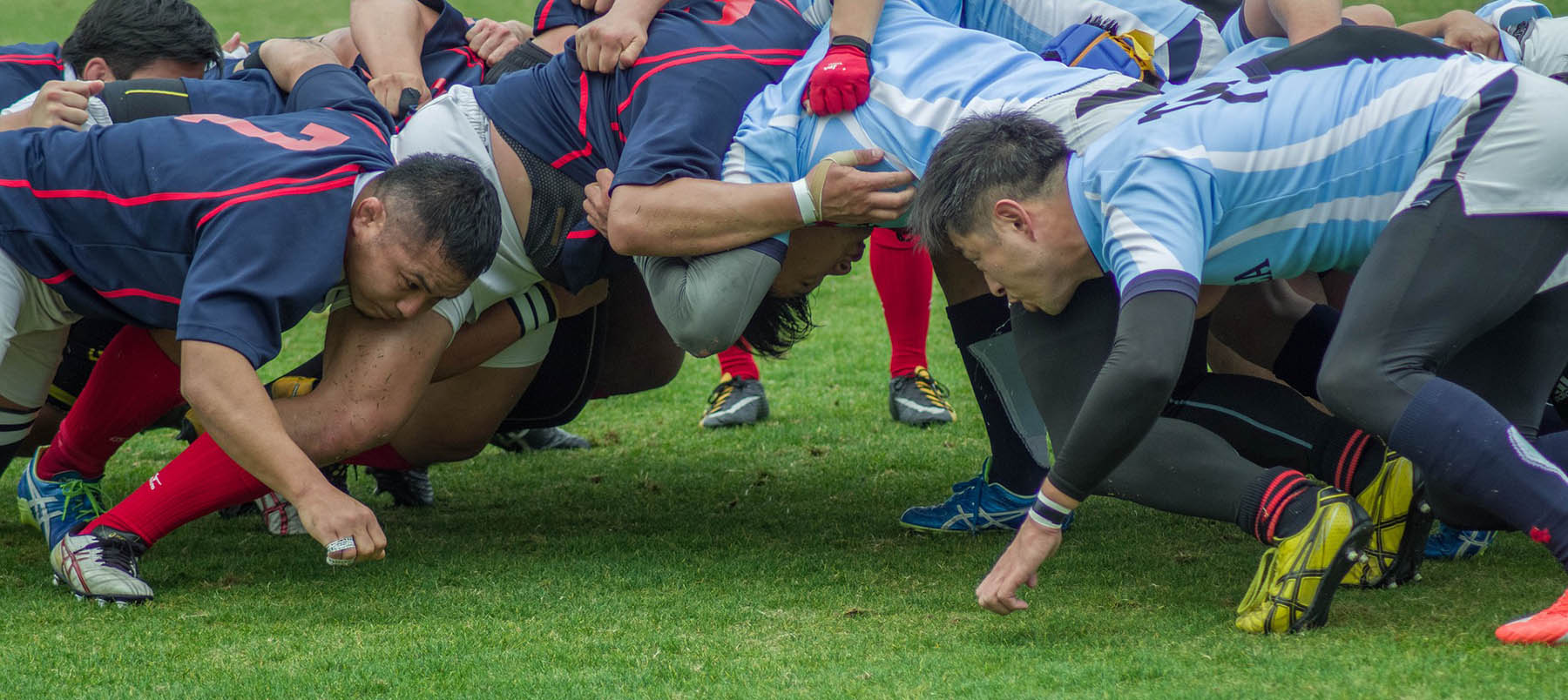
Winchester academics Keith D. Parry, Senior Lecturer in the Department of Sport and Exercise, and Eric Anderson, Professor of Sport, Masculinities and Sexuality, discuss how the public reaction to Australian rugby union player Israel Folau’s recent homophobic comments show that the sporting community and wider Western society is becoming more accepting of the LGBT community.
Israel Folau has had his playing contract terminated by Rugby Australia (RA) following the latest in a string of public comments that he has made in opposition to homosexuality as a committed Christian.
Last year, he posted a comment on social media saying that gay people would go to “HELL… Unless they repent of their sins and turn to God” . This was followed by a defence of his position via PlayersVoice, a website that allows players to pen articles ‘in their own words’, to explain the religious rationale behind his comment. However, while he was warned not to repeat the offence, Rugby Australia’s chief executive indicated that there would be no sanction for the article as he had “clearly articulated his religious beliefs”.
The religious justification for views such as Folau’s is not historically uncommon. It has been documented that homophobia in the United States and other Western countries during the 1980s was heightened by vocal fundamental Christian views that opposed and demonised homosexuality.
But matters are changing. Attitudes toward homosexuality are changing, yearly. There are now 26 countries that permit same-sex marriage, and the United States has recently seen the first openly gay man announce his candidacy for the Presidency in 2020.In the light of this, the response from both sporting authorities and fans alike following Folau’s latest social media post has been very different.
Despite the RA’s earlier warning, in a recent post on Instagram, Folau listed a series of ‘sins’ alongside the comment: “Those that are living in Sin will end up in Hell unless you repent. Jesus Christ loves you and is giving you time to turn away from your sin and come to him.”
He has now been sacked, a decision that has been supported by the national coach of Australia who confirmed that he would no longer select Folau to play for the national team.
We recognise that there are important questions/debates around whether or not people should be able to express their deeply-held religious views with impunity. Regardless of one’s position on this issue, it appears that, increasingly, Western societies maintain that the answer is no. This is becoming the case in sport, too.
Sport and homosexuality
Male sport is one of the few remaining avenues for men to display physical prowess and heterosexual domination. As a result, it has traditionally reinforced an orthodox form of twentieth-century masculinity that is linked to those who are white, middle-class, able-bodied and most important – heterosexual. This has traditionally negatively impacted the lives of gay males and other sexual minorities in sport.
Rugby union, for example, has long been a sport that was considered to be inhospitable towards gay men. In 2004, American researchers, Muir and Seitz found that a desire to play or associate with rugby often stemmed from a wish to link themselves to the exaggerated form of masculinity that is found in the game. Given these conditions, it is unsurprising to find that rugby has been recognised as enabling a culture that is rife with homophobia and misogyny. As a result of this culture, a number of inclusive rugby clubs, for players predominantly identifying as homosexual, were formed in the late twentieth century. These players had earlier felt alienated by organised rugby due to a combination of their sexualities or the distinct ’macho’ culture of the sport.
However, today there is far more tolerance — even celebration — of gay men in rugby. When Welsh rugby player Gareth Thomas came out in 2009, he was met with exceptional support from players and fans alike. Research on younger players shows that they are much more accepting of gay males in their sport. Evidencing this, we recently examined inclusive rugby clubs in the UK and found that the players no longer played for gay rugby teams to escape the homophobia of the broader rugby culture. Instead, they play on predominantly gay teams for the clubs’ social aspects.
Sports fans have also historically been less supportive of gay rights. As just one example, a 2014 incident saw openly-gay rugby referee Nigel Owens subjected to homophobic abuse from the stands during a game. But there are signs of change in even this homophobic arena and further evidence of increased acceptance of gay males in rugby.
For example, England rugby international Billy Vunipola was booed by the crowd at a domestic match after he expressed his support for Folau on social media. Vunipola ‘liked’ Folau’s Instagram post and further stated that: "He's saying how we live our lives needs to be closer to how God intended them to be. Man was made for woman to procreate, that was the goal no?” Vunipola, like Folau, has been condemned by many fans and removed from his position as an expert commentator for domestic broadcaster Channel 4’s rugby coverage.
This changing cultural more is easily defined by suggesting that, whereas in the 1980s homosexuality was condemned in sport, today it is homophobia.
All of this suggests that, increasingly, the justification of homophobic slurs through freedom of speech based on religious views is being challenged. Canada's Supreme Court recently ruled that LGBT rights outweigh religious freedom in 2018. The court found that protecting the safety of LGBT students at a Christian law school was more important than the school's right to religious freedom. Clearly Rugby Australia found the same in regards to Folau.
With precedents being set in politics, education and the employment of athletes we may finally be ‘winning an era’ and witnessing a more inclusive society. At the very least, athletes may think twice before they take to social media to express controversial opinions.
Back to media centre